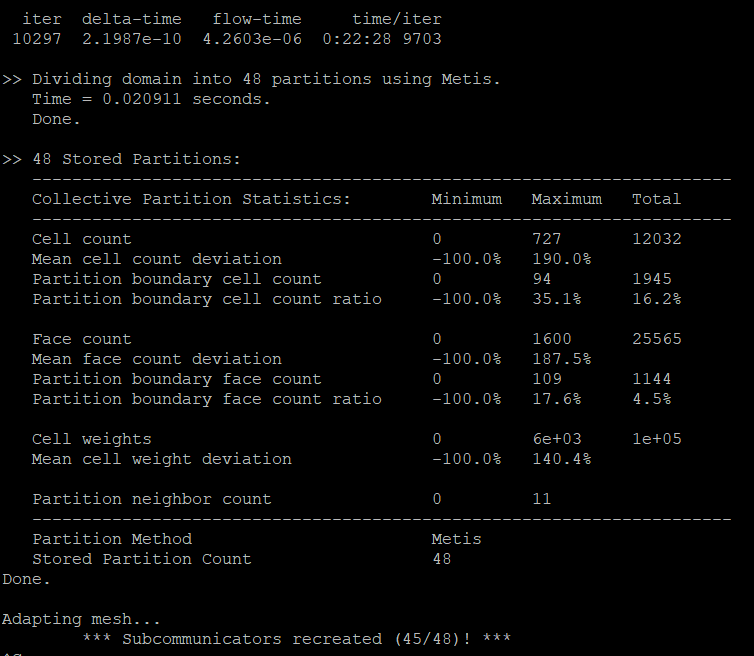TAGGED: -adaptive-mesh, ansys-hpc, mesh-refinement
-
-
September 8, 2024 at 7:20 pm
dkmenend
SubscriberHello,
I am running a 2D case with AMR on 48 processes over 1 node on my school's HPC cluster. I'm watching the output file and I see this:

The cell count row seems to indicate that some partitions are given 0 cells. This is repeatedly the case in the output log. Is my understanding of this correct and is there something I can do to make fluent distribute the cells more evenly so that my case runs faster?
Help is greatly appreciated.
-
September 9, 2024 at 1:01 pm
Rob
Forum ModeratorGiven the maximum cell count is 727, and total is 12032, I'd probably not even bother running on more than one core. Parallel tends to lose efficiency when you get fewer than about 50-100k cells per core.
-
September 9, 2024 at 4:45 pm
dkmenend
SubscriberHi Rob,
Thanks for answering. If I'm trying to optimize my simulation time for a case using mesh refinement. Should I aim to keep the orginal grid as course as possible, and have a lot of layers of refinement, or could it be faster to have less refinement layers but a more fine original mesh.
Or is the goal to minimze total cells in any case?
Thanks for your help.
-
September 10, 2024 at 8:42 am
Rob
Forum ModeratorNot a simple answer.
Starting point - the mesh must have sufficient resolution to get the flow field about right. Ie the bulk flow is fine and you capture all of the main features.
Refinement - will use gradient adaption (for example) to refine in regions where it's needed.
For optimising speed, you trade off remeshing time against having a larger cell count all of the time. You also trade off dynamic repartitioning against solve time. My general approach is to use enough cells to get the job done, but also to not stress the hardware I have available. Mesh refinement may well be used, but depends on the physics and purpose of the simulation.
-
- You must be logged in to reply to this topic.



-
3407
-
1057
-
1051
-
896
-
887

© 2025 Copyright ANSYS, Inc. All rights reserved.







